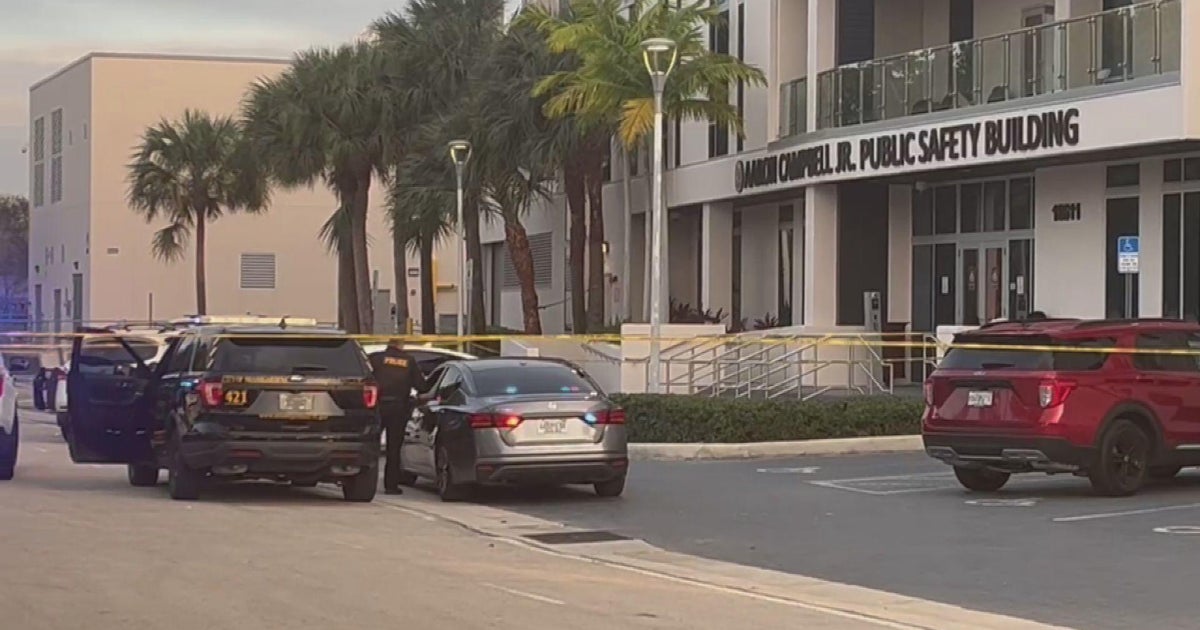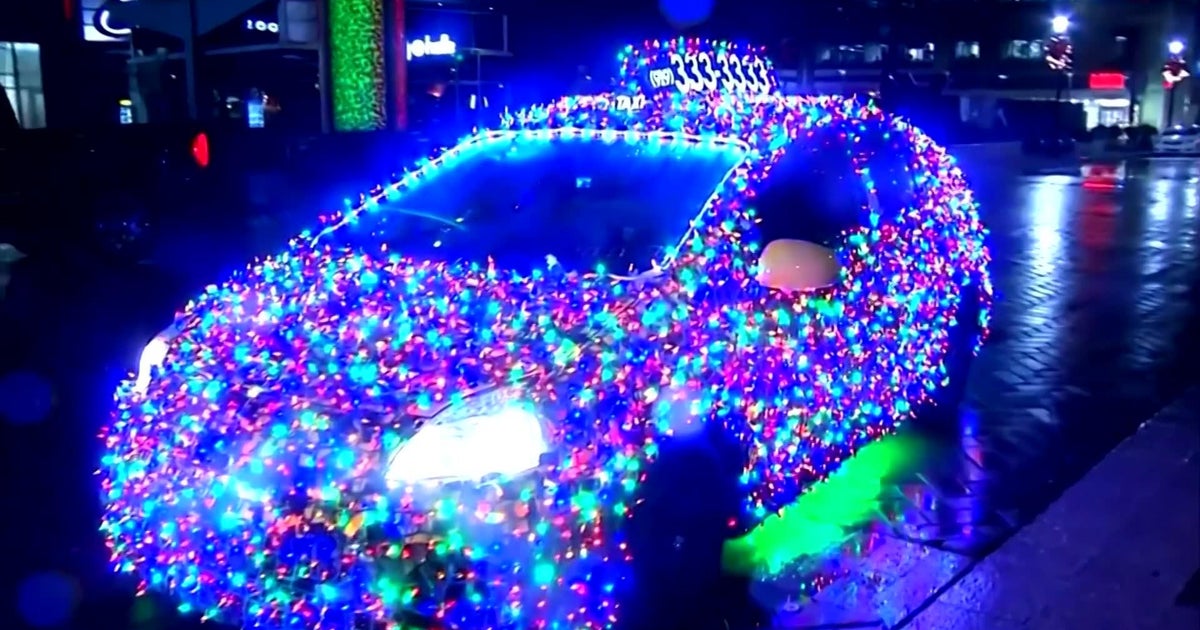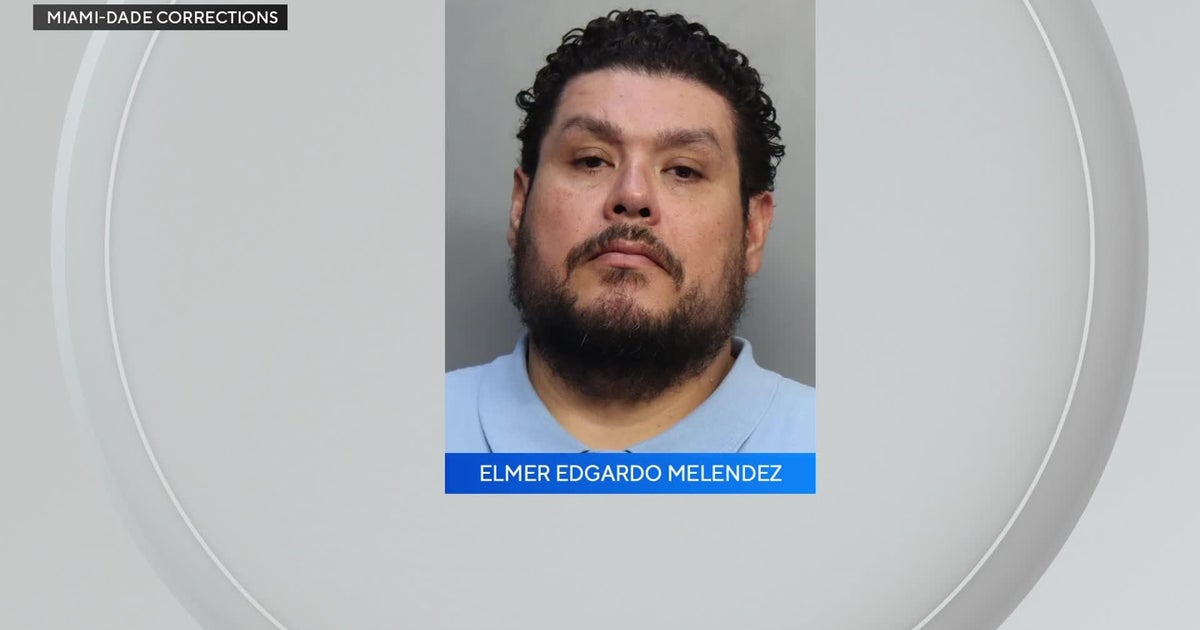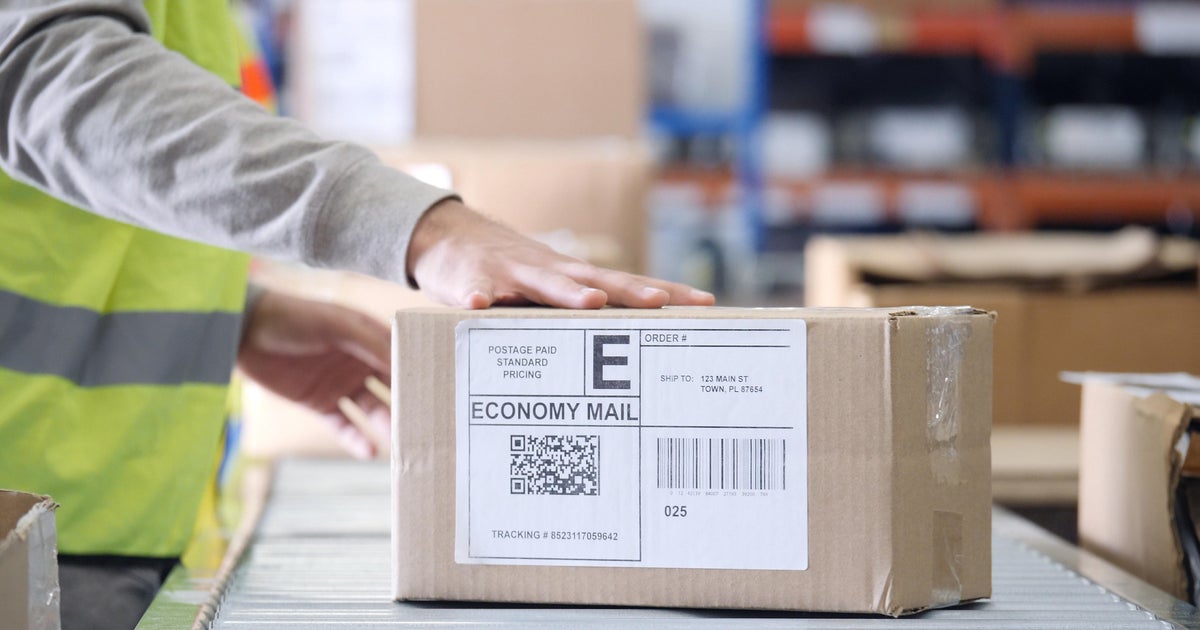CBS News Miami Investigates: Some police weapons are sold when officers are done with them
MIAMI - CBS News Miami Investigations explored what police departments do with their weapons when they are done with them.
We have discovered 52,000 guns, once owned by law enforcement agencies, have been discovered at crime scenes nationwide. This happened during the period between 2006 and February of 2022.
CBS News partnered with nonprofit newsrooms, "The Trace" and "Reveal" after surveying 200 police agencies nationwide. The investigation found a majority sell their guns when they decide to upgrade their arsenal. There are agencies in South Florida that conduct this practice.
CBS News Miami's Chelsea Jones sat down with Tangela Sears; a mother of a man killed by gun violence almost ten years ago. The shooter in that case was found not guilty but even before her own tragedy, Sears was a voice for families of murdered children. She showed up to crime scenes and advocated with decision-makers for change.
When we asked Sears about the thousands of guns showing up at crime scenes nationwide, she was floored.
"We talk about taking guns off our streets every day. So, to hear that this is going on, you're [police departments] a part of the problem," she said.
For this report, we reached out to the Florida Highway Patrol, the Miami Dade Police Department, the City of Miami Police, and The Broward Sheriff's Office, to ask them, what do they do when they rid of their weapons.
The Miami Police Department is the only agency that agreed to an on-camera interview. They shared that the guns they recover at crime scenes and in other specific instances, are destroyed.
Chief Manny Morales said in the last 30 years, the department has upgraded its weapons once. The new guns are cheaper to maintain and easier to get. MPD has a partnership with Lou's Police Distributors, a federally licensed gun dealer in Hialeah. Lou's did not want to comment for this report.
In 2021, when MPD upgraded its weapons, Morales stated the city got over $400,000 which was then used to purchase new guns.
When asked if MPD has had a firearm show up at a crime scene, Chief Morales said it was hard to track.
"We do always run any trace when we have a crime gun. What we have recovered in several crime scenes have been guns that were stolen from Miami police officers," he said.
Law enforcement agencies have the call to action to get guns out of the hands of criminals and Morales reports that his department is doing just that.
"We've taken, in the time that I've been here since October of 2021, we've taken a little over 2,600 guns off the streets and those guns, every single one of them is destroyed," Morales said.
Florida Highway Patrol sells its guns, though it isn't clear exactly who FHP sells to.
The Broward Sheriff's Office tells us it doesn't sell old weapons, but instead trades them to federal firearms licensed dealers, who could then legally sell them. They gave us this statement about its practices to reduce gun violence:
Preventing gun violence takes a consistent, multi-pronged approach. Each day, the Broward Sheriff's Office utilizes a mixture of technology, thorough investigative work and tips from the community in its efforts to prevent, reduce and solve gun crimes.
For instance, BSO leverages technological advancements through its Threat Management Unit and the Real Time Crime Center (RTCC) at the Public Safety Building and separate RTCC's in its Pompano Beach and Cooper City districts. The RTCC's allow deputies to investigate threats, provide live intelligence during investigations and help direct first responders in real time during an active incident.
You can learn more about these efforts here:
https://www.sheriff.org/Pages/Sheriff/View-Message.aspx?id=105
ShotSpotter technology is another tool used in this effort. Several BSO districts use ShotSpotter, which identifies where gunfire is occurring and allows deputies to quickly respond, gather information and evidence on the incident and potentially provide life-saving treatment to victims.
From a legal perspective, one avenue in this effort is using Florida's red flag laws to temporarily remove firearms from individuals deemed by a judge to be a threat to themselves or others.
The community's involvement is also a key factor in preventing and solving gun crimes. Law enforcement needs buy-in from members of the community to share information on individuals with intentions to carry out gun violence or tips to help arrest those who commit these acts. The public can also assist law enforcement by safeguarding their firearms. Never leave a firearm in your vehicle and also practice safe storage of weapons. (Please see the graphic below for additional tips). And remember, if your firearm is stolen, please immediately report it to law enforcement.
Finally, it is crucial to remind your viewers that law enforcement does not make the laws that govern gun ownership and usage in this state or country. Those decisions rest in the hands of elected officials. Law enforcement officers enforce those laws in a persistent effort to keep communities safe, ensure justice for victims of gun crimes and attempt to deter future criminal acts involving firearms.
The Miami-Dade Police Department does not sell its weapons. It has a strict policy regarding firearm retention. The department gave us this statement:
"Under no circumstances will any firearm owned by or in the custody of the department be sold, transferred, exchanged, or loaned to any law enforcement agency or private concern, except in specific cases such as court-ordered disposal or official judicial proceedings. Firearms that are no longer required by the department are disposed of through destruction or dismantling of parts. This policy ensures that firearms are properly handled and accounted for within the department."
As for all the South Florida Law Enforcement Agencies examined for this report it's unclear whether any of their guns have been found at crime scenes, and if so, how many.
However, Sears believes no former police guns should leave the department at all. "We cannot have our police department doing anything that's going to allow these guns back on our streets. We can't have that," said Sears.
Chief Morales was asked what message he has for those who feel strongly about the practice of selling former police weapons. Here is his response: "I hear their concerns and I believe that there's something, that not only the administration for the city of Miami, but other police departments across the nation should reevaluate," he said.
We asked all agencies mentioned in this report for on-camera interviews, aside from City of Miami Police, they all declined.



